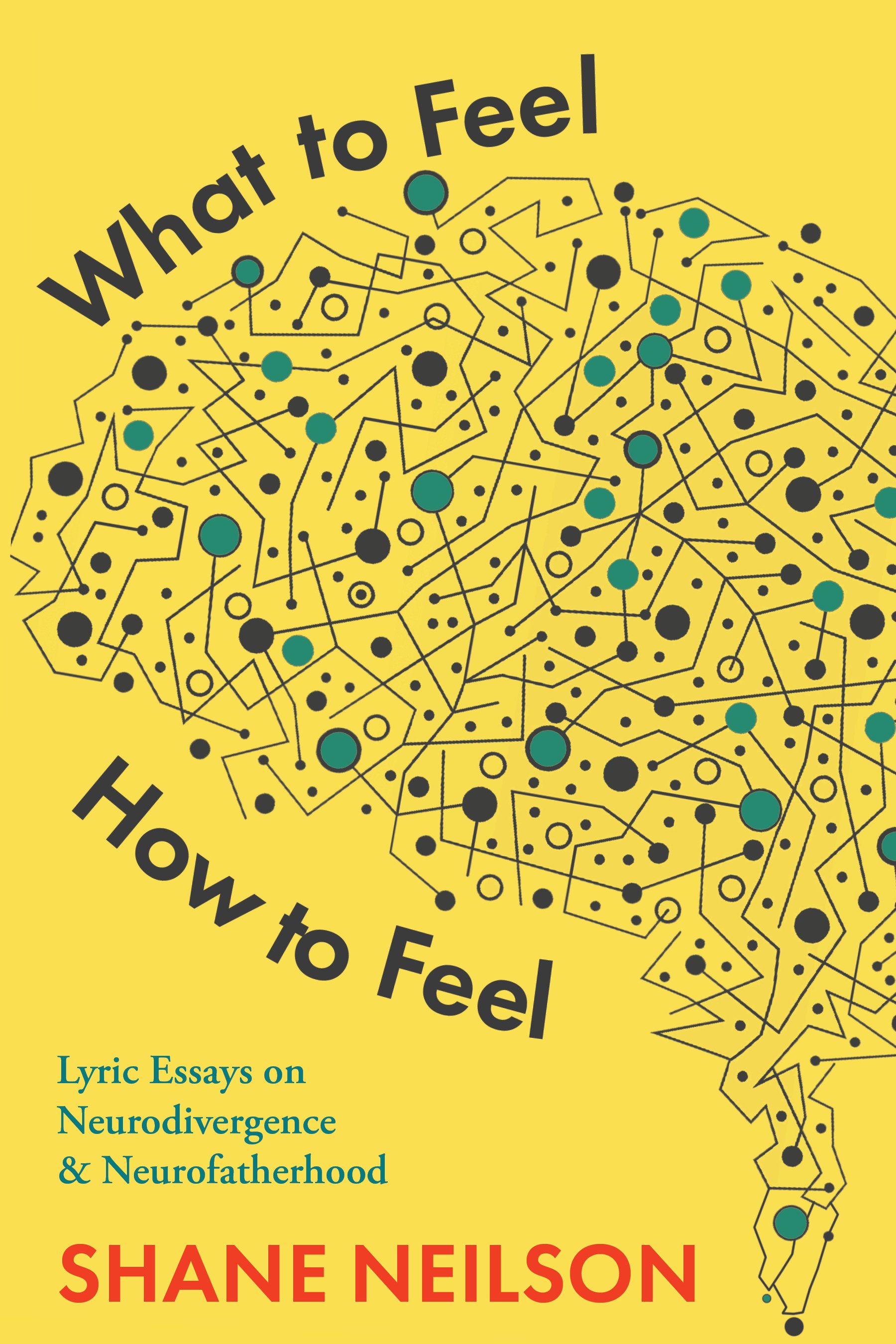Q: Your book, What to feel, how to feel: Lyric essays on neurodivergence and neurofatherhood (Palimpsest Press, 2025) is replete with questions. Lots of questions. And fittingly, no tidy answers. What’s a question you grapple with still?
A: A question I’ve asked myself since my son Kaz suffered the neurological catastrophe that rendered him intellectually disabled: Who will look out for him after I am gone?
I touch my left popliteal fossa. Left wrist. Left index. I ask the question again. Who will look out for him after I am gone? My right hand repeats the cycle.
In the basement, at age ten, I’m throwing a dance party. For one person – my son. Laser lights and loud music from a kiddie karaoke machine. At any moment, a dance party can happen. At any moment, I might think: I don’t think he’ll be able to live independently. Will he be able to have a job? Who will look out for him after I am gone? My right hand repeats the cycle.
In “The Weeping Tense,” a poem I wrote when he was eleven years old, I ask the question in a different way: “Who will stand on guard uselessly for him when I am gone?” For my watching and guardianship are so often futile. How can I hope to stop the world as it lands on both of us, right now?
Clothes on hangers. Stock on shelves. Peanut butter on sandwiches. Vocational training at his school. Chores around the house. I’ll ask the question as I watch, the fucking question. The question tyrannizes me now, I know it’s pointless, destructive. I know too what matters now is that he’s here now, that I’m here now, that it’s foolish for the norm to impose itself as competency in mudane domesticity, that he is not auditioning for self-sufficiency at every moment, that independence is not the normie agency dream it’s cracked up to be. For a few seconds I forget the question by looking out the window. An older man with an everted foot slowly makes his way down Grand Street South. He’s making his way back from a long day collecting change at an intersection near the Wal-Mart on Pinebush Road, his face bronzed from sun. Three steps, then he has to stop. Start again. Who will look out for him after I am gone?
What to feel, how to feel: Lyric essays on neurodivergence and neurofatherhood (Palimpsest Press, 2025)
About What to feel, how to feel:
In What to feel, how to feel, Shane Neilson dazzles in the lyric essay form. Focusing on non-neurotypicality, Neilson investigates his supposed difference of self while also holding to account society’s construction of that difference, moving from his early childhood to adulthood and then back again in terms of a neurodivergent fathering of his own son. Covering subjects that have yet to receive attention in Canadian literature, including how the medical profession discriminates against its own, Neilson’s poetic accounts of stigma and self-discovery interleavened with literary history mark a first in our letters.
Shane Neilson. Photo credit: Zdenka Neilson
About Shane Neilson:
Shane Neilson is a mad and autistic poet-physician who practices in Guelph, Ontario and who teaches health humanities at the Waterloo Regional Campus of McMaster University. His prose has appeared in the Walrus, Maisonneuve, Image, the Globe and Mail, and many other places.



